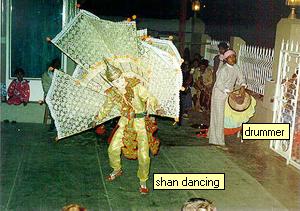there are 2 big problems in islet cell transplants for curing (see the word
CURE)diabetes .
1) lack of sufficent donor islet cells .
2)destruction of transplanted cells.
may be we are finding ways and means of combating the second problem
It is a proud moment for us to see an Indian (NAGENDRA SINGE) working with the japanese in USA
The natural killer T-cell ligand -
galactosylceramideprevents autoimmune diabetes in non-obese diabetic mice
SEOKMANN HONG1, MICHAEL T. WILSON1, ISAO SERIZAWA2, LAN WU3, NAGENDRA SINGH1,
OLGA V. NAIDENKO4, TORU MIURA2, TOMOKU HABA2, DAVID C. SCHERER1, JIE WEI1,
MITCHELL KRONENBERG4, YASUHIKO KOEZUKA2 & LUC VAN KAER1
1Howard Hughes Medical Institute, Department of Microbiology and Immunology,
Vanderbilt University School of Medicine, Nashville, Tennessee, USA
2Pharmaceutical Research Laboratory, Kirin Brewery Co, Ltd., Gunma, Japan
3Department of Medicine, Vanderbilt University School of Medicine, Nashville, Tennessee, USA
4La Jolla Institute for Allergy and Immunology, San Diego, California, USA
S.H., M.T.W. and I.S. contributed equally to this study.
Correspondence should be addressed to L.V.K.; e-mail: vankael@ctrvax.vanderbilt.edu
base on this .
the same chemical is found to help protect transplanted islet cells .
Discovery Could Boost Type 1 Diabetes Care
Researchers spot key player in success of transplanted insulin-producing cells
TUESDAY, Sept. 27 (HealthDay News) -- The survival of transplanted insulin-producing cells is improved when activation of "natural killer T" immune cells is blocked, Japanese researchers report.
They believe the finding could help boost the effectiveness of islet cell transplants for the treatment of insulin-dependent type 1 diabetes. This form of the disease (affecting about 5 percent of diabetics) is caused by the destruction of insulin-producing cells in the pancreas by the body's own immune T-cells.
Transplantation of these "islet cells" requires patientto continue lifelong immunosuppression therapy.Even with immunosuppression treatment, up to half the transplanted islet cells are quickly destroyed by the patient's own T-cells, however.
In their research with mice, the Japanese team showed that natural killer T (NTK) cells instigate this rapid destruction of transplanted islet cells. When the NKT cells become activated -- most likely in response to the stress of the transplant procedure -- they produce an inflammatory molecule called interferon (IFN)-gamma.
It's this molecule that helps activate immune T-cells to destroy islet cells, the researchers report in the Oct. 3 issue of the Journal of Experimental Medicine.
Transplanted islet cells survived in mice that lacked NKT cells or were unable to produce IFN-gamma, the researchers found. They also found that multiple doses of the drug alpha-galactosylceramide caused NKT cells to produce less IFN-gamma. Decreased production of IFN-gamma greatly improved the survival of transplanted islet cells, the study found.
According to the Japanese team, multiple doses of the drug -- currently in human clinical trials -- may help prevent the early loss of transplanted islet cells in humans.
In an extension of the same anology
this same chemical may prove to be useful in preventing rejection of other transplanted organs .
